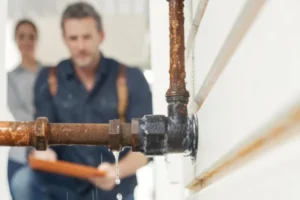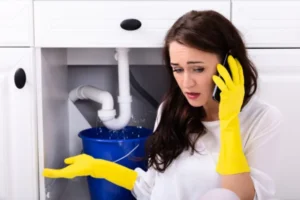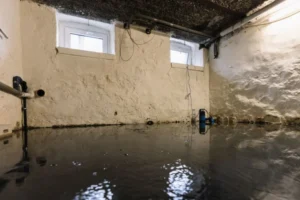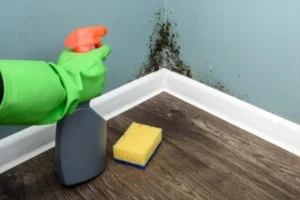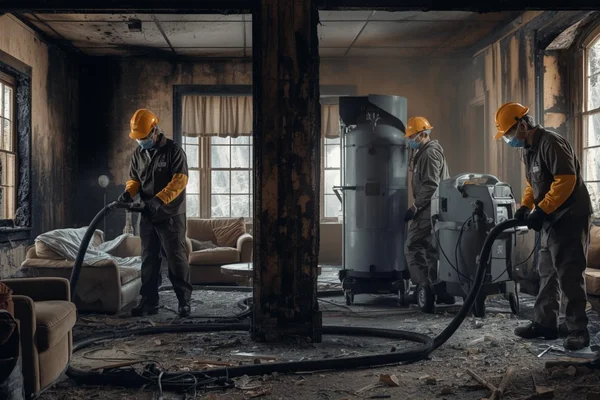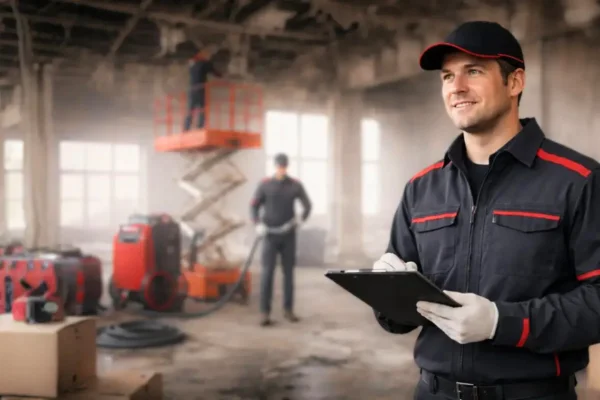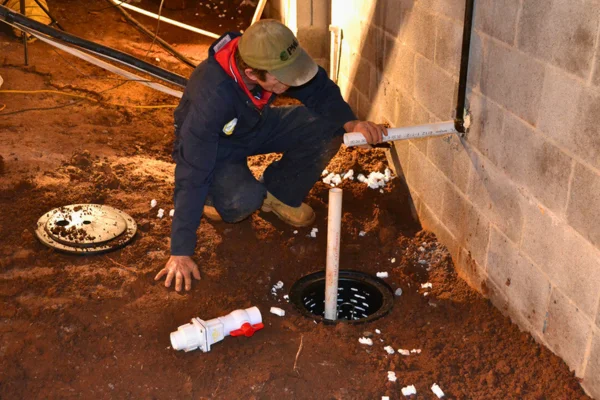Water damage often starts small—a dripping pipe under the sink, a loose appliance connection, or a ceiling stain you meant to check later. However, those small issues can quickly escalate into costly repairs and health risks if left unaddressed. The good news? With a few simple habits and regular maintenance, you can protect your kitchen and your entire home from leaks and moisture.
Below are practical water damage prevention tips every homeowner should know, along with signs to watch for and when to call in professional help. Let’s take a look at how to stop home water leaks and prevent water damage.
Why Water Damage Prevention Matters
What starts as a drip under the sink or a damp spot on the ceiling can quickly turn into structural damage, warped cabinets, and mold growth. Here’s what to know about the real costs of small leaks and the most common sources of water damage in your home.
The Cost and Risks of Ignoring Small Leaks
Even a small leak can become a significant problem if left unattended. Water can seep into floors, cabinets, and walls, weakening the structure and creating a perfect environment for mold growth. Beyond the visible damage, hidden moisture can lead to unpleasant odors and health hazards that are difficult to fix once they spread.
Common Causes of Water Damage in Homes
Common causes of damage include worn-out pipes, clogged drains, broken seals around sinks, and leaky appliances. Roof leaks and poor drainage can also cause problems in other areas of your home. Understanding these causes helps you stay proactive and protect both your property and your wallet.
Identifying Hidden Sources of Water Leaks
Not every water leak becomes immediately apparent. Some happen quietly behind walls or under appliances, slowly causing damage over time. Catching them early is the key to preventing larger repairs later and makes it easier to go about preventing basement flooding and other water intrusion issues.
How to Spot Water Leaks in Walls and Ceilings
If you notice discoloration, peeling paint, bubbling surfaces, or soft spots, you may be dealing with hidden moisture. A musty odor or the sound of dripping water can also signal trouble. Knowing how to stop leakage from a ceiling quickly—such as turning off your water supply and drying the area—can prevent long-term damage.
Checking your Refrigerator and Kitchen Appliances for Leaks
Appliances are a familiar source of kitchen leaks. To prevent a water leak from a refrigerator or dishwasher, check the area around the base for puddles or moisture, inspect the hoses for cracks, and look for signs of rust or corrosion on the connections. Even a small drip can indicate a larger issue that needs to be addressed before it worsens.
Signs of Plumbing Issues You Shouldn’t Ignore
Keep an eye out for dampness under sinks, water stains, or an unexplained increase in your water bill. These may be signs of hidden plumbing leaks. Addressing them ahead of time is one of the most effective ways to reduce costly causes of water damage. Conducting a quick five-minute inspection every month can help you identify these minor issues before they escalate into major repairs.
How to Prevent Basement Flooding and Moisture Damage
Your kitchen isn’t the only area at risk. Moisture in your basement can easily spread upward, damaging floors and walls throughout your home.
Tips for Sealing Cracks and Improving Drainage
If you see small cracks in your basement walls or floor, seal them immediately using epoxy or polyurethane sealant. Ensure the soil around your home slopes away from the foundation, and clean your gutters regularly to prevent water overflow. These small efforts go a long way toward avoiding basement flooding.
Installing a Sump Pump or Backwater Valve
For added protection, consider installing a sump pump or backwater valve. These devices automatically redirect water away from your home during heavy rains or plumbing backups—essential for comprehensive water damage prevention. Regular maintenance ensures they’re ready when you need them most.
Basement Maintenance During Heavy Rain Seasons
Before stormy weather hits, double-check your drainage systems to ensure they are functioning properly. Clean gutters, seal any new cracks, and use a dehumidifier to control humidity levels. Not only does this help prevent basement flooding, but it also supports the prevention of mold.
Mold Prevention After Water Damage
If you’ve had a leak or minor flood, prompt action is crucial to prevent mold from forming. Mold can start growing within 24–48 hours in damp environments, especially in kitchens and bathrooms.
Proper Drying and Ventilation Practices
Use towels or a wet vacuum to remove standing water. Open windows and doors to allow for airflow, and run fans to expedite the drying process. Pay close attention to cabinets, corners, and under appliances—places where moisture often hides.
The Importance of Dehumidifiers in High-Moisture Areas
Dehumidifiers help maintain safe humidity levels, reducing the likelihood of mold growth. Run one in your kitchen or basement after any leak or spill, and empty it regularly. This simple tool is one of the easiest and most effective ways to create a healthy indoor environment.
When to Call in Professionals for Mold Remediation
If you notice visible mold, a persistent musty odor, or widespread water damage, it’s best to call a professional. Certified specialists can safely remove mold and restore affected areas without spreading spores throughout your home.
How to Stop Leakage from Ceilings and Roofs
Leaks from above often start small—a few drips during rain—but can quickly lead to ceiling stains, insulation damage, or worse.
Common Causes of Ceiling Leaks
Roof damage, clogged gutters, and leaky pipes are the main culprits. Missing shingles, damaged flashing, or plumbing lines running through your attic can all allow water to enter. Addressing these issues promptly prevents damage from spreading.
Steps to Take Before Professional Help Arrives
If you discover an active ceiling leak, turn off the water supply if plumbing is involved—place buckets to catch dripping water and move furniture or valuables out of the way. Dry the area gently with fans while you wait for professional repair.
How Routine Inspections Prevent Long-Term Damage
A few minutes spent inspecting your roof each season can save you from expensive restoration work later. Look for missing shingles, water stains, or cracks around chimneys and vents—minor issues that can become significant problems if left unaddressed.
When to Call a Professional for Water Damage Prevention
While DIY maintenance covers many situations, some water damage risks require expert tools and training, such as water leak from refrigerator and other common sources.
Benefits of Professional Water Leak Detection Services
Specialized leak detection services utilize thermal imaging and moisture meters to identify issues that are not visible to the naked eye. These professionals help you locate hidden leaks, prevent significant damage, and save on unnecessary repairs—giving you peace of mind that your home is protected.
Working With Restoration Experts and Insurance Companies
If you experience significant water damage, a professional restoration company can manage the cleanup and coordinate directly with your insurance provider to ensure a seamless process. SS Water Restoration, for example, offers 24/7 emergency response and works closely with insurance companies to help homeowners recover quickly and efficiently.
Keep your property safe and dry—call SS Water Restoration for professional water leak detection and prevention services.
Final Thoughts on Keeping Your Home Leak-Free
Water damage prevention starts with consistency—small steps that add up to significant savings.
- Inspect plumbing and appliance connections regularly.
- Keep gutters and drains clear.
- Monitor humidity levels and seal gaps around windows and doors.
By catching leaks early and maintaining your home’s systems, you can avoid expensive repairs and protect your family’s health. Stay alert, and your home will stay dry, comfortable, and damage-free for seasons to come!


